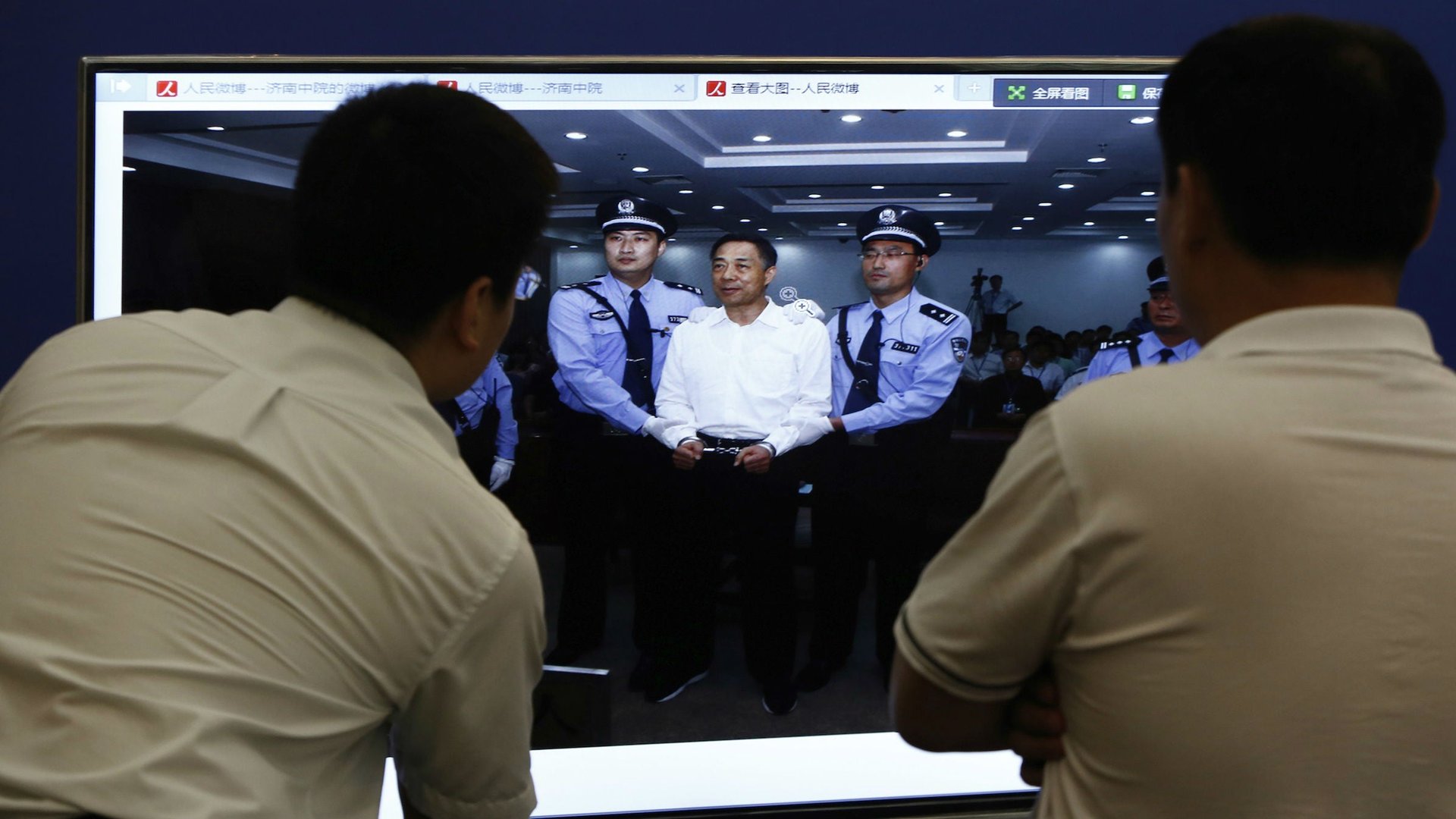China’s government may be becoming a little less corrupt
Here’s a little good news for Xi Jinping and his campaign to tackle the “flies” and “tigers” of corrupt officials—over the past three years, business people, country experts and others believe that corruption in China’s public sector has gradually lessened, according to Transparency International.


Here’s a little good news for Xi Jinping and his campaign to tackle the “flies” and “tigers” of corrupt officials—over the past three years, business people, country experts and others believe that corruption in China’s public sector has gradually lessened, according to Transparency International.
On the group’s latest index, based on perceptions of corruption in a country’s public sector, China scored 40 out of 100, one point higher than last year’s score of 39. (A grade of zero indicates the country is “highly corrupt.”) In 2011, when the agency calculated the numbers a little differently, China scored 3.6 out of 10, up from 3.5 in 2010—again with zero being the most corrupt. Compared to the other countries analyzed, China isn’t doing that badly. It was ranked 80 out of 177 nations, two-thirds of which scored lower than 50. Denmark and New Zealand were perceived as the least corrupt with a score of 91; the lowest scores went to Afghanistan, North Korea and Somalia with 8.

Xi’s recent crackdown on corruption, which has felled dozens of officials and now calls for requiring newly appointed or promoted officials to disclose their assets, could boost business confidence. The Transparency International index and others like it are often used by foreign firms to assess the legal risks of a country, and determine if they could run afoul of local laws or their own, like America’s Foreign Corrupt Practices Act. (Transparency International’s rankings are based on data from 13 organizations, including the World Bank, the Economist Intelligence Unit, and the World Justice Project Rule of Law Index.)
Of course, the index only measures the “perception” of corruption, from the point of view of businesspeople, analysts, and in earlier versions, citizens, not whether corruption is actually occurring. The latter is especially hard to gauge in China where the opacity of the government and party bureaucracy mean that graft, fraud and other illegal acts can be hidden well. Well-publicized campaigns like Xi’s claiming to fight corruption happen almost every time a new generation of Chinese leaders takes over, and are inevitably influencing those perceptions.